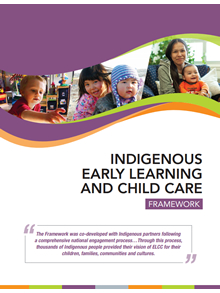ELCC Expert Panel Appointment
Update, June, 2019
The NCCIH is pleased to announce the appointment of Dr. Margo Greenwood as a member of a new Federal Government Expert Panel on Early Learning and Child Care Data and Research, announced by Employment and Social Development Canada in a press release, June 4, 2019. The panel includes a diverse group of leaders, practitioners, Indigenous representatives and experts in early learning and child care. It is tasked with identifying priority action areas and innovative approaches to inform an early learning and child care data and research strategy that aligns with the work of other government priorities. As an Indigenous scholar of Cree ancestry, the NCCIH’s Academic Leader, and Vice-President of Indigenous Health for the Northern Health Authority (IH:NH), Dr. Greenwood brings more than 30 years of expertise and experience focused on the health and well-being of Indigenous children and families to the panel.
Another news announcement:
The framework is a key step towards “self-determination, reconciliation, and cultural revitalization”
November 2018

Supporting First Nations, Inuit and Métis children and families is one of the pillars of the work at the NCCIH. As such, we are pleased to see the September 17, 2018 release of the federal government’s Indigenous Early Learning and Child Care Framework, which sets out a shared vision for providing high-quality, culturally-rooted, language-based, accessible, and affordable early learning and child care programs in Indigenous communities.
This framework is the culmination of an extensive national, regional and community-based engagement process involving government representatives and Indigenous organizations, early childhood educators, leadership, partners, Elders and families from across Canada. The framework is built on the foundation of nine cross-cutting principles:
- 1) Indigenous knowledges, languages and cultures;
- 2) First Nations, Inuit and Métis determination;
- 3) quality programs and services;
- 4) child and family‑centred;
- 5) inclusive;
- 6) flexible and adaptable;
- 7) accessible;
- 8) transparent and accountable; and
- 9) respect, collaboration and partnerships.
Yet, in recognition of the diversity of Indigenous peoples, it also embodies distinct First Nations, Inuit and Métis early learning and child care frameworks, goals and principles. The framework is a key step towards “self-determination, reconciliation, and cultural revitalization”1 for First Nations, Inuit and Métis peoples.
Access to high-quality, appropriate and culturally-rooted early learning and child care is a fundamental component in achieving social equity and improving socio-economic outcomes for Inuit in Canada. Inuit Tapiriit Kanatami has been proud to provide Inuit-specific guidance to the Framework and looks forward to continued collaboration on ensuring the vision it sets out is realized for Inuit children and families across Canada.2
As stated by Natan Obed, the President of Inuit Tapiriit Kanatami (ITK).